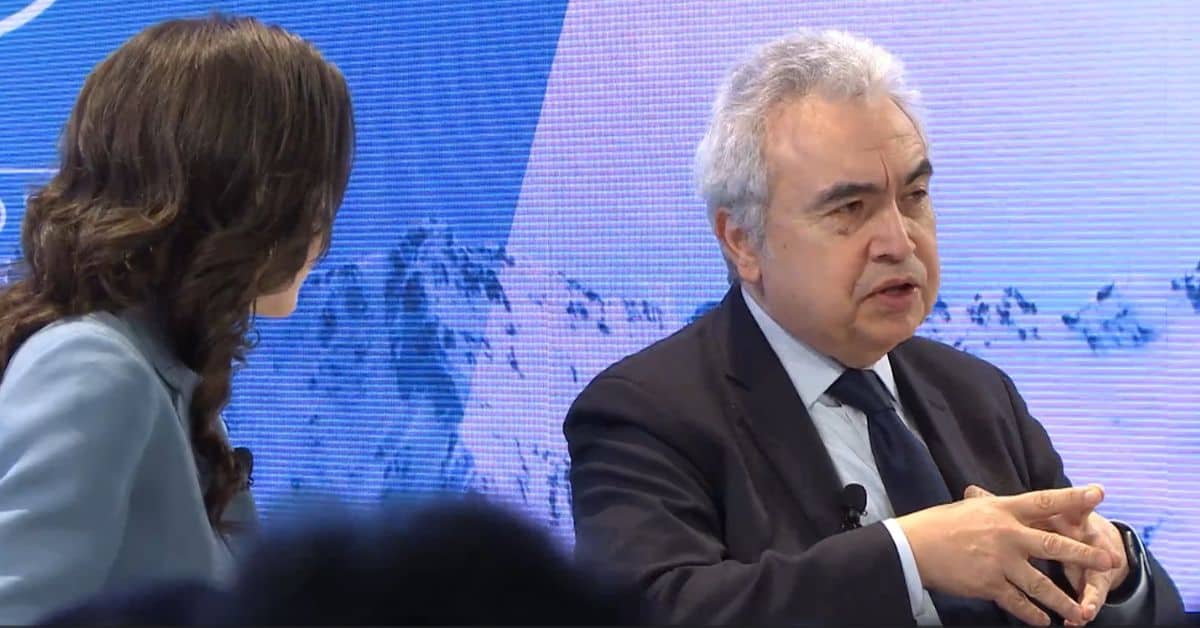As billionaires reunite for the annual meeting of the World Economic Forum, in the Swiss ski resort, there are fewer politicians.
Russia’s war in Ukraine and tensions between the US and China, made significant changes in 2022’s global economy, in which participants at the Davos forum considered it to be the main derivates for the energy crisis and the green economy obstacles.
In a panel titled: “Mastering New Energy Economics”, Fatih Birol, Executive Director at International Energy Agency, stated that at the beginning of the Russian military operation in Ukraine, “IEA sent to the whole world that we are entering the first global energy crisis. Our world has never seen an energy crisis like this”.
Birol also said that concerns about energy security were now the primary motivator for climate investment. He also mentioned that the United States Inflation Reduction Act (IRA), signed by President Joe Biden last year, is the most significant climate pact since the historic Paris Agreement in 2015.
Climate target
In terms of reaching the global environmental targets, Birol says: “it is simple for all of us in the frame”.
#wef23#IEA executive director Fatih Birol highlighted at @wef the problems faced by the world due to Ukraine war.
— TRENDS (@mena_trends) January 17, 2023
#risks23 #Davos @fbirol #EnergyCrisis @IEA pic.twitter.com/b1B1V4MueJ
In the “Mastering New Energy Economics, Birol explained: “Today, the world invests one dollar for fossil fuels and 1.5 dollars for clean energy. That is the ratio. If we want to reach our target, this ratio of one against 1.5 should be one against nine”.
The main concern remains the emerging countries, since developing countries and regions like Europe and the US are putting high investments on clean energy and technology, as a sustainable solution for replacing the traditional energy sources.
Birol believes: “Advanced economies have two reasons to support the clean energy financing. Firstly, the amount of CO2 going into the atmosphere from Detroit or Jakarta or New York or Marseille has the same effect on everyone”.
He continued: “Secondly, climate change is an issue of percentage of carbon in the atmosphere, so they have a moral reason to clean”.
Global declines
The annual meeting of the World Economic Forum in Davos opened Monday, with business leaders and economists warning of a possible global recession in 2023.
Of the 4,410 business leaders PricewaterhouseCoopers polled in October and November 2022, 73 percent of chief executives and economists expected global growth to decline in the next 12 months.
The reading was the worst since the consultancy began polling investors in 2011. Two in five expressed concern that their companies might not last a decade.
The report added that two-thirds of experts expected the global economy to enter a state of recession this year, and most of them agreed that growth prospects are limited, especially in Europe and the United States. As for China, experts disagreed about the levels of growth that the Asian giant will record after liberating its economy from the strict restrictions of “Corona”. Despite the difficult challenges facing the global economy, the report pointed to some positive developments expected in 2023, noting that the impact of global supply chain disruptions on trade activity has receded, and that the cost of living and energy crises are approaching their climax. In addition, respondents highlighted a number of reasons for optimism, including the strength of household finances, the easing of inflationary pressures and the continued resilience of the labor market.

